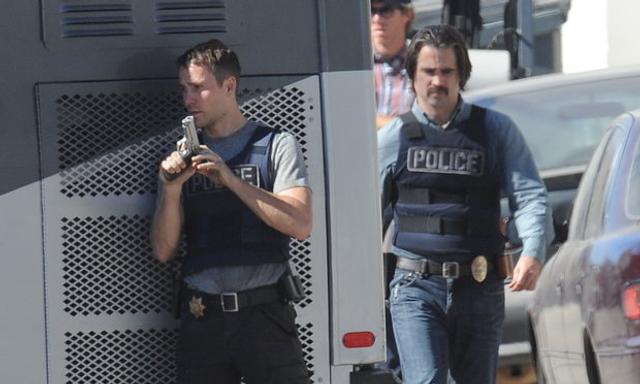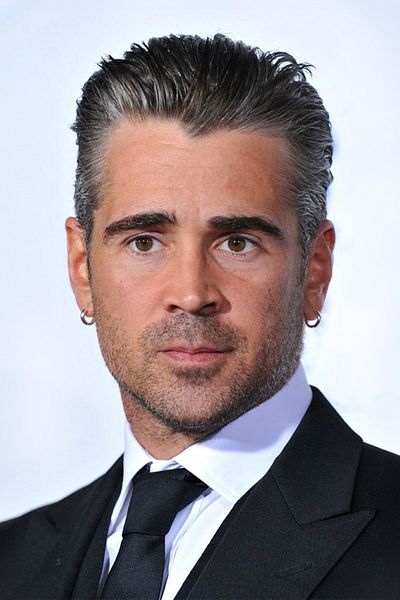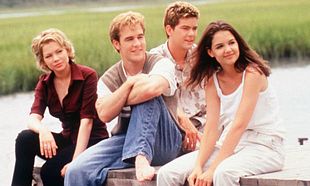There hasn't been a show quite like True Detective's second season that's so clearly split audiences down the middle.
The second season was always going to be a tough sell. Those who begrudgingly watched the first season felt that the star-power of McConuaghey and Harrelson was carrying the series, not to mention that Oscar-nominated director Cary Joji Fukunaga was directing each and every episode of the series. Moreover, many felt that it was a fluke and that, for all the accolades and critical acclaim it received, there wasn't much going on. It was just another cop show.

So what's so different this time around? They've replaced two heavy-hitters with three heavy-hitters, right? They've got an impressive list of directors this time around, including our own John Crowley of Intermission fame, directing the fifth episode of the series. Justin Lin, who directed mega-blockbuster Fast Five and Six and is currently working on Star Trek Beyond, directed the first episode of the new series. It's understood William Friedkin met with HBO and could possibly turn up to direct one of the remaining episodes.
Likewise, the in-depth, labyrinthine storytelling is still there and the insight to masculinity in the modern era and how men treat women is still present. All the elements, essentially, are still present.
Season 2's defenders will argue that the first season took time to get going. That's correct, up to a certain degree. For one, the storyline in the first season was much less convoluted - although it did take quite some time before it shaked out better and we knew where we were going. Likewise, you had an audience that was captivated from the start. The use of placing the story in the past and retelling it from two different angles was inspired. This time around, we're in the story now. As it develops. Fans say that's a good thing and that the last season's use of back-and-forth became a bit glib towards the end.
What's more, it's reasonable to argue that they can't repeat the same thing and hope for the best. Writer / showrunner Nic Pizzolatto, who's been targeted by detractors as the reason for this season's failings, made it quite clear that True Detective was an anthology series. New season, new story, new characters, new everything and no holdovers. It's bold, to say the least. The first season made a lot out of its character development and fully realised its core cast's potential. To dump that out at the end of the season and start again shows a willingness to let itself become stale.
The second season's plot is more in line with something from '70s hard-boiled crime thrillers. The kind that William Friedkin excelled at. There's a richness to it all and the show's penchant for exploring the bleak underworld beneath all that glitters is similar to the first. Then it was the wholesomeness of the South, its piety and good 'oul values. Here, it's about Los Angeles' opulence, its constant need for attention and fame and how ultimately vacuous it all is. Here, Pizzolatto is giving Hollywood and the fame he's experienced both barrels and letting us look at the damage.
As well, jettisoning a good proportion of the first season's characteristics - the gothic Southern setting, the supernatural elements, the religious overtones - shows that Pizzolatto's fully prepared to burn bridges behind him and motor forward with his own vision. It's here where we reach the detractor's arguments against it.

For one, throwing out the rulebook for the first season and starting over wasn't brave - it was damn stupid. It had a formula that, broadly speaking, worked. The intense, sprawling landscapes of Louisiana and the bayou made up some of True Detective's most gorgeous shots. Likewise, McConaughey's nihilistic, embittered worldview was in stark contrast to the lush beauty that surrounded him. This time around, it's dirty, angry people in a dirty, angry city. There's no byplay between them - it's just down in the gutter and we're with them. End of.
The flowery, overtly grandiose dialogue sounded more believable coming from someone like McConaughey than it does from Vaughn. With McConaughey's character, we understood that he was a faux intellectual who quoted Nietzsche and talked about time becoming a flat circle. This was in those memorable interview scenes where his character knocked back cheap beer and rambled on. There, it made sense. But when we see Vaughn's gangster-going-straight character using words apoplectic and talking about how there's a stridency in someone's tone, it comes off as clunky and overbearing.
Detractors would also argue that any sense of subtlety is gone out the window. Taylor Kitsch's character, struggling against himself and his sexuality, is an interesting one. However, it's handled so clumsily that detractors feel it's become almost a parody of itself. From the outset, it was clear what Kitsch was - yet why take so long to finally, openly reveal it? And what's up with Rachel MacAdams? Does she have penis envy? And why introduce a female character in the opening episode half-dressed, post-sex? The storyline, this time around, does feature a notable inclusion from the previous season - the cross-pollination of sex and religion.
However, this time, it's draped over another story of internal corruption and a city's that rotting from the outside in. Trying to force two storylines, which are rich with their own facets and details, over one another isn't smart. It's downright stupid, detractors feel. For one, it utterly confuses even the most hardened viewers and leaves them trying to play catch-up on every episode. Whereas the first had a cleanliness of a sort, this season feels more bloated, overwrought and, well, flatter. Couple this with the disjointed visual styles from changing directors every other week and you're left with an experience that's forcing you rather than pulling you in.

Despite these opposing arguments, one thing is certain - people are still going to turn out for each episode because we're in it now. We have to see this through the end. Maybe that's True Detective's real charm - its ability to get under your skin and force you into watching it. It's not just the social aspect of it; not knowing what people are talking about it. It's that we've all invested so much in that we have to see it through. As we're now in the final stretch, with three episodes to go, we need to get an ending that will work out both sides to their conclusion.
What do you think? Are you enjoying this season of True Detective? Vote in our poll and let us know in the comments!




















































































